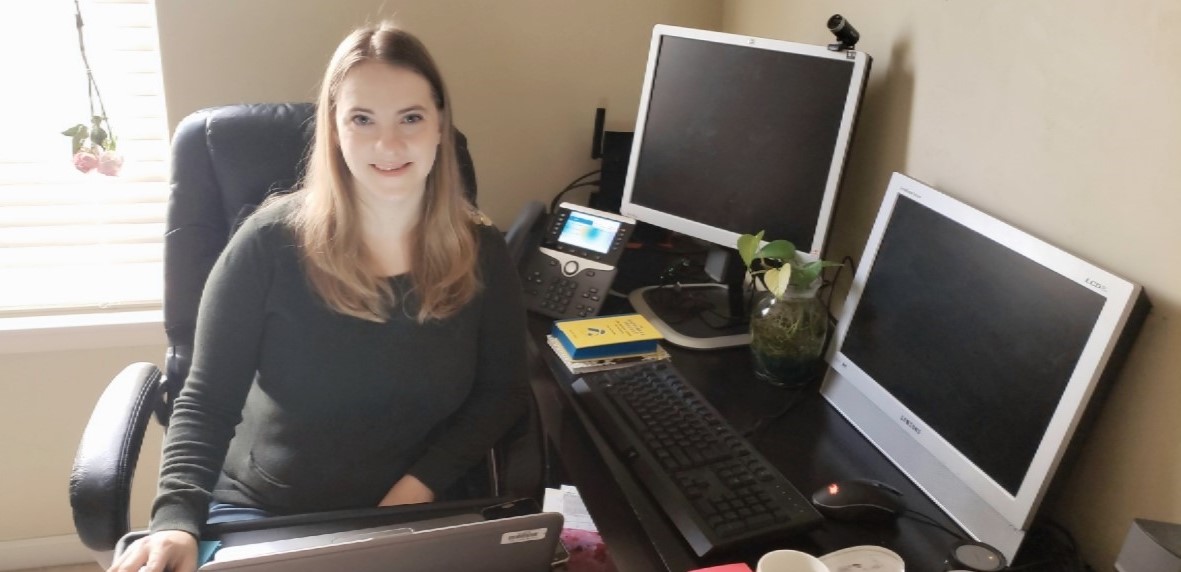Irene Seidt hadn’t heard from one of her elderly diabetic patients in a while, so she reached out to check on him.
Seidt wanted to tell him that she and others in our retail centers were working from their homes due to COVID-19 concerns. She wanted to see if he was taking the precautions they had talked about. And she wanted him to know that although his wife passed away last year, he was not alone.
The 87-year-old man couldn’t believe Seidt had taken the time to reach out. That a nurse from his insurance company cared enough about him to do that. “I have no one,” he told Seidt. “But the fact that you called me means I have someone.”
In mid-March, the centers transitioned to a virtual retail operation. But the mission of keeping people healthy and safe continues. The centers’ nurses, community specialists and service teams have turned desks and tables in their homes into workspaces. (Call 877-352-5830 to talk with someone or to leave a message, which will be returned.)
Lynette Moriak is one of 18 Florida Blue Center community specialists around the state. They’re social workers who work with members and anyone in the community to find services and savings on everything from health care issues to personal needs, like rent and food. In the first nine months of the program, they have found more than $9.16 million in assistance for about 9,500 people.

Moriak tries to serve as a calming voice for people who’ve lost their jobs and are unsure how they’re going to feed their families, keep their lights on or pay their rent. She tells them there are government and nonprofit programs available to help. Most importantly, Moriak assures them, “You’re going to be OK.”
She created a newsletter that details resources and programs available to those in the Tallahassee area, which is the community she serves. It includes information on food banks, including ones practicing safe social distancing, where you can drive up and they’ll put the food in your trunk. It lists restaurants where children can eat free, businesses where first responders can get discounts and many other resources. Other teams across the state used her idea and started newsletters relevant for their areas.
Moriak has also helped business owners understand what grants are available to help them and their employees. For example, the National Restaurant Association Educational Foundation is offering $500 grants to eligible restaurant workers impacted by COVID-19. There’s a similar program for bartenders.
Seidt said many of her callers have hygiene and safety questions related to COVID-19. They want to know how long the coronavirus stays on surfaces like plastic and stainless steel (up to two to three days), cardboard (up to 24 hours) or in the air (up to three hours). With sanitizer and other cleaning products being almost impossible to find in stores or online, Seidt has been sharing directions on how people can make their own. Frequently washing your hands for 20 seconds with soap and warm water is even better.
She’s also been referring people to auntbertha.com, a clearinghouse of sorts so people can find help with free or lower-cost food, housing, transportation and legal issues. The database is searchable by ZIP code. Both the nurses and community specialists have been sharing the locations of testing sites throughout the state.
The commitment to help sometimes continues when the workday has ended. Moriak was scrolling through a Facebook moms groups one night, looking for activities to do with her son. Instead, she saw a plea from a mother who had just lost her job but didn’t know how to file for unemployment.
Moriak was off duty, but that didn’t matter. She quickly offered to help the woman. Then came pleas of “Can you help me?” from so many others. Some didn’t know how to apply for food stamps, others needed help locating food banks. Moriak helped them all.
She knows these are difficult times, as COVID-19 impacts so many things around us.
“Right now, people are in such weird spots,” Moriak said. “They don’t even know where to go. It’s nice that we can fill a gap we didn’t even know we needed to fill.”
